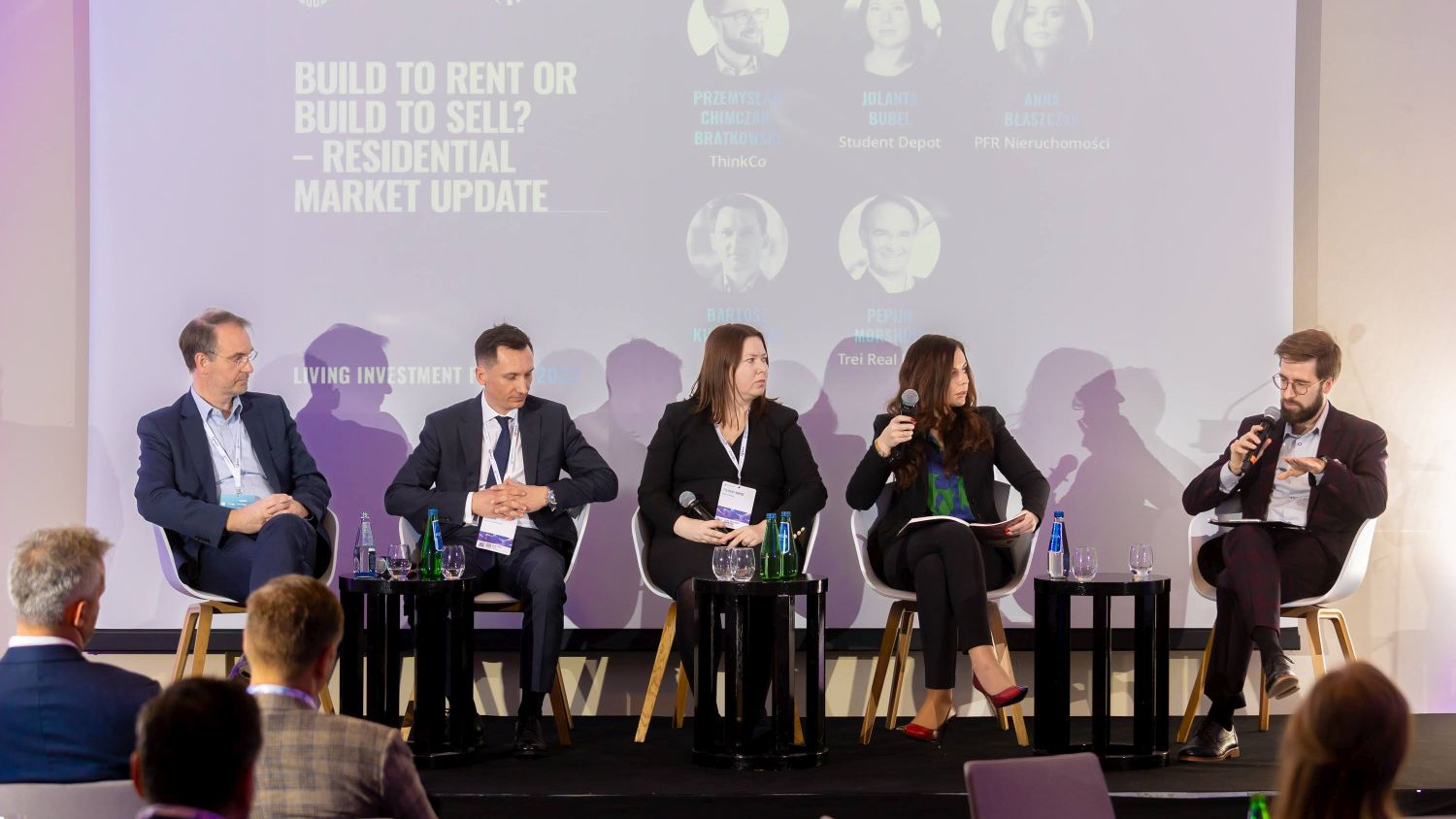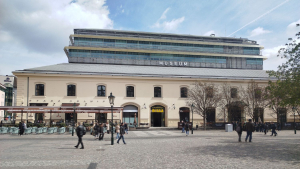
Residential units in Poland – is it better to build them to rent or to sell in the current economic environment? The participants of Living Investment Forum 2022, held by Property Forum last week in Warsaw, were unanimous – for now, rental is the only choice.
Przemysław Chimczak-Bratkowski, Managing Partner at ThinkCo, who moderated the discussion panel dedicated to the rental market has clearly stated that the current state of affairs is not very favourable for the build-to-sell model because of the rising interest rates and the common lack of credit worthiness. „During the last seven months, the residential market in Poland has completely changed. Because of the spiking interest rates, the opportunity to buy an apartment is extremely rare right now. On the contrary, the rental market is booming - we have a lot of tenants who cannot buy anything and are willing to rent an apartment, and we also have refugees from Ukraine. Plus, we have students coming back to the rental market after COVID. We have developers willing to sell whole investments to PRS funds, but the investors are waiting on the purchase decisions because of the interest rates. It`s a completely new reality”, stated Chimczak-Bratkowski.
Anna Błaszczyk, Member of the Management Board of state-owned PFR Nieruchomości has confirmed his words but also underlined that developers building to rent have to face the same challenges as all the others: „Actually, the rental sector has strong fundaments for further development. But we have numerous concerns about its affordability. We are dealing with rising operating costs and higher prices of raw materials and oil, and now we have to cope with the higher cost of energy. Right now, we are trying to focus on lowering the production costs and energy savings, using, for example, prefabrication”.
Jolanta Bubel, Chief Executive Officer of the Student Depot chain mentioned other factors, like rising minimum wages and legal amendments: „The key factor is to be able to adapt is very good management and quick decision-making. During the sales season, we changed the pricing three or four times and it was well-perceived, the occupancy remained high. These days, you have to be very aware of how you construct your offer. Our product is all-in pricing, which means we are highly exposed to the risk of utilities and tax changes. Obviously, the increase in minimum wages also has a huge influence on our business: cleaning cost, security etc. And as student housing, we need to keep such services operating 24/7. So as a result, we can expect that next year our margin will lower by maybe 2-3% This is what we expect at the moment, but we also expect that it will be a short-term situation”, said Bubel.
However, despite some turmoil, build-to-rent investors remain optimistic in the long run. „I think what this half a year has changed in Poland, is that everybody has realized that the rental market will grow. We have higher interest rates and many younger Poles are now not able to buy an apartment as quickly as they hoped. My outlook on the global economy is perhaps a bit more pessimistic, I think the recession that we will face will be flatter but longer. We will probably stay in this environment for quite some time. And it will obviously developers and operators will have to adapt and are already doing it. Because the fundamental need for young people - to live somewhere apart from with their parents - is high and will remain high”, said Bartosz Kułakowski, Sales Manager in the Polish branch of Vonder.
His opinion was shared by Pepijn Morshuis, CEO of Trei Real Estate: „I started to work in the property business in the early 90s. This is the fifth crisis I`m in and I'm still alive. We were able to continue with business every time there was a crisis. The same will happen here as well. We just have to adjust and that's basically it. For the sale business in Poland, it significantly went down, but it didn't disappear, we have to keep that in mind as well. There still are a lot of private individuals that have a lot of cash. With the uncertainty all around, they want to have something real in their hands. So we are still selling apartments today. As for the PRS side of the business, the main big thing that is driving it is fundamentals, and they have not changed. When you look at the available rental product in Poland, it's not often institutional quality. The current estimated market, including what's in the construction, is about 35,000 to 40,000 units that will be delivered over the next 12 to 18 months. On the scale of the whole market, it`s nothing, you can hardly put it into percentages. If you compare it to the other markets, on average, in Europe 5% of the market is of institutional quality, with some markets going as high as 40 to 50%. So there's the enormous potential for growth”.



